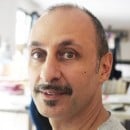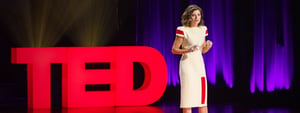The research conducted by the psychologist Lera Boroditsky is distinguished by its original and interdisciplinary approach, which integrates methods and knowledge drawn from linguistics, psychology, neuroscience and anthropology.
In this TED Talk, Boroditsky presents a summary of her studies, affirming a thesis that is repeatedly confirmed by the most recent specialist publications: language is not only essential for communicating, but it is also an incredibly powerful tool for shaping the way we think.
This seemingly contemporary belief has actually been held for many centuries, as evidenced by the famous quote of Charlemagne, Emperor of the Holy Roman Empire: “Having a second language is like having a second soul”.
But in what way does the language we speak influence our way of thinking?
Some 7,000 languages are spoken worldwide. And all of them differ profoundly from each other, with evident effects on important aspects such as the representation of time, the way calculating is done, and orientation in space.
The case of the Kuuk Thaayorre, an Australian Aboriginal community studied by Boroditsky personally, is exemplary:
What is interesting is that, in their language, they don’t use words like ‘left’ and ‘right’, but they express everything in relation to the cardinal points: north, south, east and west. For the Kuuk Thaayorre, time is determined by the territory. It’s a drastically different way of conceiving time.
But the differences don’t end there. There are languages that do not have specific words for numbers, others that describe colours only in terms of “light” and “dark”, and others that use different grammatical genders for the same things.
Even the way people describe events also changes profoundly,
People who speak different languages will pay attention to different things, depending on what their language requires.
For example, two people who witness the same crime but speak different languages will end up remembering different things from the same event.
This tells us that we interpret information, perceive reality and live our experiences based on our linguistic and cultural patterns. All this is certainly complicated, but at the same time it is also a precious resource.
The beauty of linguistic diversity is that it reveals to us how ingenious and flexible the human mind is. The human mind did not invent a single cognitive universe, but 7,000: there are 7,000 languages spoken worldwide. And we can create many more. Language, of course, is a living thing, which we can shape and change to adapt it to our needs. The tragic thing is that we are losing this linguistic diversity continuously. We are losing about one language per week and, according to some estimates, half of the world’s languages will be lost in the next 100 years.
We must therefore try to preserve this wealth as much as possible, because every time we encounter another language and another culture, we also learn a lot about ourselves.

